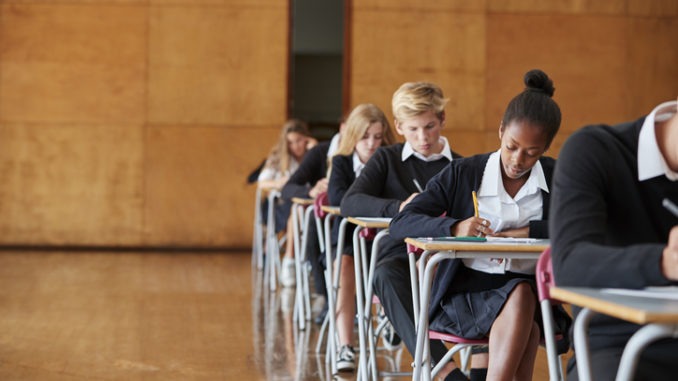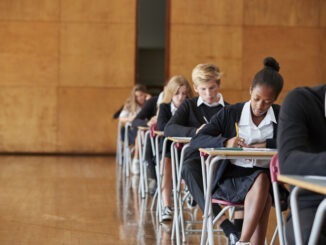
As reported by The Guardian, heads are under pressure to carry out too many assessments and use data on previous pupils’ performance, teachers warn
Fears are growing over how GCSEs and A-levels will be awarded in England this summer, with headteachers under pressure to carry out an ‘excessive’ number of assessments on students and use historical data about previous pupils’ past performance to “unjustly” suppress the grades of individual high achievers.
New government guidance, issued to headteachers shortly before the Easter holidays, has sent schools in England into a state of panic and is unfair on pupils, teachers say.
Some schools are asking GCSE students to sit as many as 35 exams over the next four to six weeks, so that they have recent evidence to justify the grades they are awarding. But before they hand out any grades, headteachers have been instructed by Ofqual to consider their school’s results in previous years “as a guide to help them to check that their judgments are not unduly harsh or lenient”.
Last summer, Ofqual created a controversial algorithm that relied on historical data about a school’s previous performance to determine the grades of pupils unable to take their exams during the pandemic. Thousands of bright pupils at poor-performing and improving state schools saw their results unfairly downgraded from their teachers’ assessments as a result.
Mary Bousted, joint general secretary of the National Education Union, said there was a risk that Ofqual’s guidance could distort results and lead to inappropriate grades being awarded this summer, too. “It may suppress the grades of a year group which has more able students than in the previous years. It could lead to injustices,” she said. “It’s imposing a data-driven outcome rather than an achievement-driven outcome.”
Teachers are expected to award students evidence-based grades, with more recent evidence deemed to be more representative of student performance, according to the recent guidance issued to schools by the Joint Council for Qualifications (JCQ). This has sent schools into an evidence-gathering frenzy.
At one London comprehensive, pupils taking 10 GCSEs have 35 separate assessments to do over the next six weeks. “It is intimidating,” said one 16-year-old, who did not wish to be named. “I’m trying not to think about it so that I don’t get stressed.”
Headteacher Jules White, leader of the WorthLess? school funding campaign, agreed headteachers across England are feeling under pressure to gather the evidence they need: “There is a danger schools will carry out too many exams when the whole point is that they were cancelled because everyone agreed that they couldn’t be carried out fairly. A range of evidence should be used rather than solely re-running exams by the backdoor.”
A Department for Education spokesperson said: “We trust teachers’ decisions on grading and the evidence they need to assess pupils. JCQ has published guidance to support teachers, schools and colleges with their processes, including on using historic data, helping to maximise consistency across the country and fairness.” She added that the guidance is clear that grading judgments should not be driven by this data.
A spokesperson for Ofqual said it had been “mindful of the impact on teacher workload. We expect teachers to use a range of evidence to arrive at a grade, and to use their professional judgment when deciding how to assess and grade their students.”
Schools, it said, “will be required, as part of their overall quality assurance, to consider the performance of this year’s cohort compared to previous years when exams have taken place, to make sure they have not been overly lenient or harsh in their assessmentsof the 2021 cohort. They are not expected to use information from previous years to artificially suppress grades.”




Be the first to comment